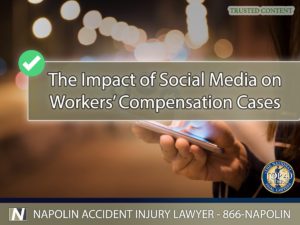The Impact of Social Media on Your Ontario, California Workers’ Compensation Case
In today’s interconnected world, social media platforms have become an integral part of our lives, offering avenues for sharing experiences and staying connected. However, for individuals involved in workers’ compensation cases in California, social media can present unexpected challenges. The content shared online can significantly influence the outcome of these cases. This article aims to shed light on the complexities of social media’s role in workers’ compensation claims and offers guidance for those navigating this landscape.
Comprehensive Overview of Workers’ Compensation in California
Workers’ compensation in California is a critical system designed to support employees who suffer from work-related injuries or illnesses. It operates under a no-fault principle, meaning that employees can receive benefits regardless of who caused the job-related injury. The system covers a range of benefits, including medical treatment, disability payments, and rehabilitation services. Understanding these laws is vital for any employee who has experienced a workplace injury or illness.
Diverse Spectrum of Workers’ Compensation Claims
Workers’ compensation claims in California encompass a wide array of injuries and conditions. These can range from acute injuries, such as falls or equipment-related harm, to cumulative trauma disorders developed over time. Psychological injuries, including stress-related conditions, are also recognized under California law. Each type of claim has its nuances and legal considerations, making it essential for claimants to understand their specific situation.

Exploring the Influence of Social Media on Workers’ Compensation
Exploring the Influence of Social Media on Workers’ Compensation
The advent of social media has introduced a new dynamic in the assessment of workers’ compensation claims. Insurance companies and opposing legal parties increasingly scrutinize claimants’ social media profiles for evidence that could challenge the legitimacy of a claim, whether valid or not. A single post or photo can potentially undermine a claimant’s case, making it imperative to understand the weight of online actions.
Impact of Online Activities on Claim Validity
Activities depicted on social media can often be misconstrued or taken out of context, leading to complications in workers’ compensation claims. For instance, a photo showing physical activity or travel might conflict with claims of physical limitations or severe injury. It’s crucial for individuals involved in these cases to be acutely aware of their online presence and the potential ramifications of their posts.

Strategic Management of Social Media During Workers’ Comp Claims
Strategic Management of Social Media During Workers’ Comp Claims
While completely disengaging from social media is impractical for many, adopting a strategic approach to online activity is advisable. This involves not only being cautious about what is shared but also understanding and utilizing the privacy settings of different platforms. A well-considered social media strategy can play a significant role in protecting the integrity of a workers’ compensation claim.
Napolin Accident Injury Lawyer: Advocating for Fair Compensation
At Napolin Accident Injury Lawyer, we are committed to providing comprehensive legal support to individuals navigating workers’ compensation claims in California. Our approach is tailored to each client’s unique situation, ensuring that their rights are protected throughout the legal process. We understand the nuances of California’s workers’ compensation laws and are prepared to offer the necessary guidance and representation.

The Impact of Social Media on Your Ontario, California Workers’ Compensation Case
The Impact of Social Media on Your Ontario, California Workers’ Compensation Case
As we navigate the complexities of workers’ compensation claims in the era of social media, it’s crucial to have knowledgeable legal support. If you are dealing with a workers’ compensation claim in California and need guidance, especially regarding your social media activity, reach out to Napolin Accident Injury Lawyer at (909) 962-8415. Our team, with its extensive experience in litigation, is dedicated to advocating for your rights and ensuring you receive the compensation you deserve.
